DIRECTOR'S STATEMENT
It was June of 2020 when my long-time friend and collaborator, Les Weider came to me and said, “We need to do something.” So many people had been killed, there had been so much unrest…as a white father to a bi-racially black daughter, Les knew he wanted to write about how he felt, how his daughter felt…but knew as a white man, that he needed another voice. That voice came to be mine.
DO SOMETHING began as a Zoom reading. Something to share with friends, with our families and our communities. And then, like the movement we were highlighting, it became so much more.
At Les’ imagination and forethought, our script grew into a drama that each day (almost literally), had topics that were headlines in the news, and continue to be. This script was written before January 6th, before the plot to kidnapped Minnesota’s Governor Whitmer, and before so many other headlines that made us shake our heads in disgust, fear and sadness. Sometimes, we truly couldn’t believe the coincidences, and sadly, the relevance.
DO SOMETHING is a drama about a young black collegiate protestor who is kidnapped and held for ransom by a white supremacist militia group. Her mother must find a way to get her daughter back. Safely.
Les and I knew we didn’t want to do another Zoom production. So, I reached out to friends, producer and filmmaker Addison Henderson and DP Sam Rosenthal, and soon, we had a plan. A plan that would allow us to make a film entirely socially distanced on cell phones. Our plan worked. Over a three-day shoot with a crew of two PAs/grips and a highly talented cast that knew their way around a camera and mic, we got to work.
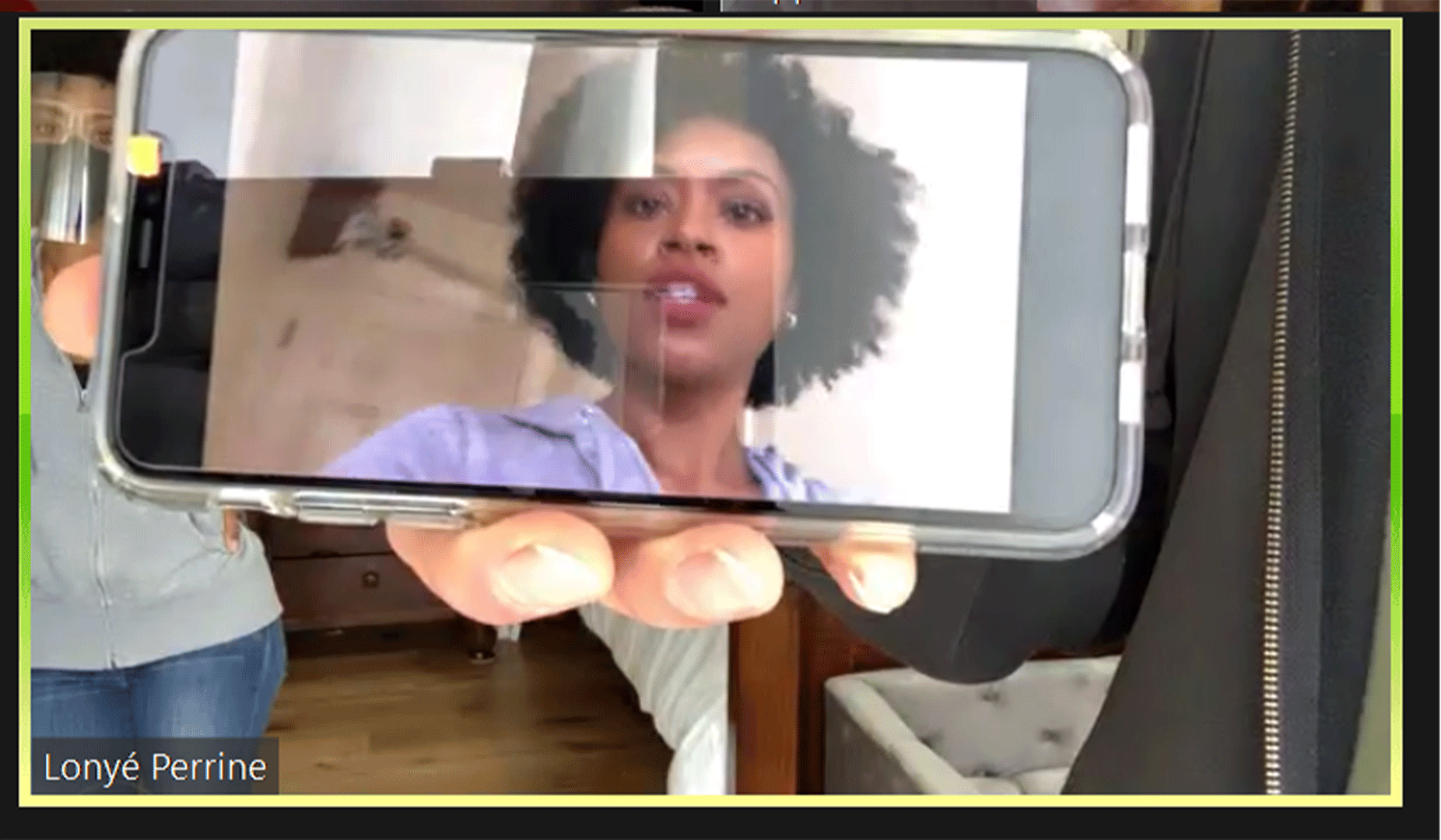
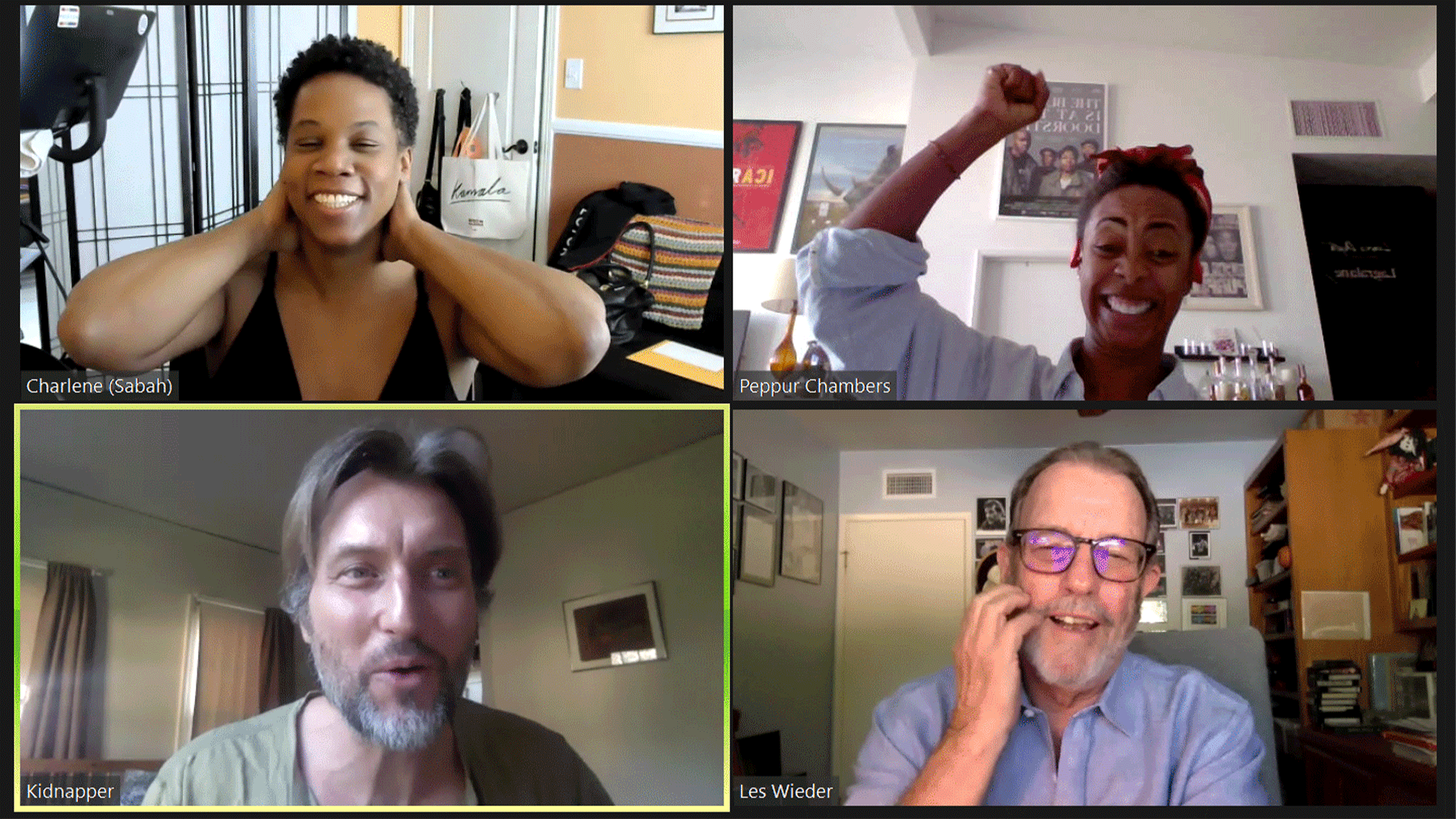
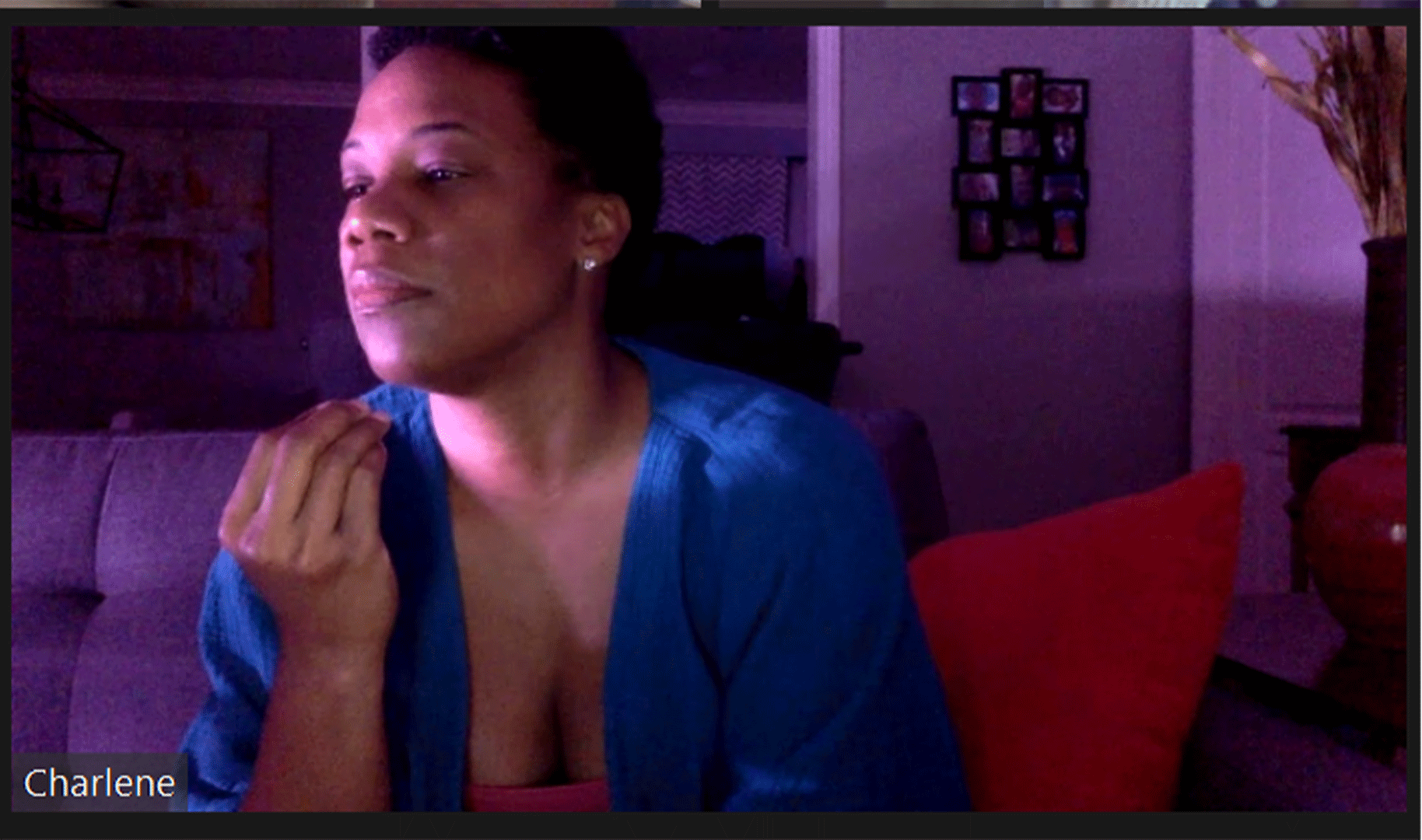
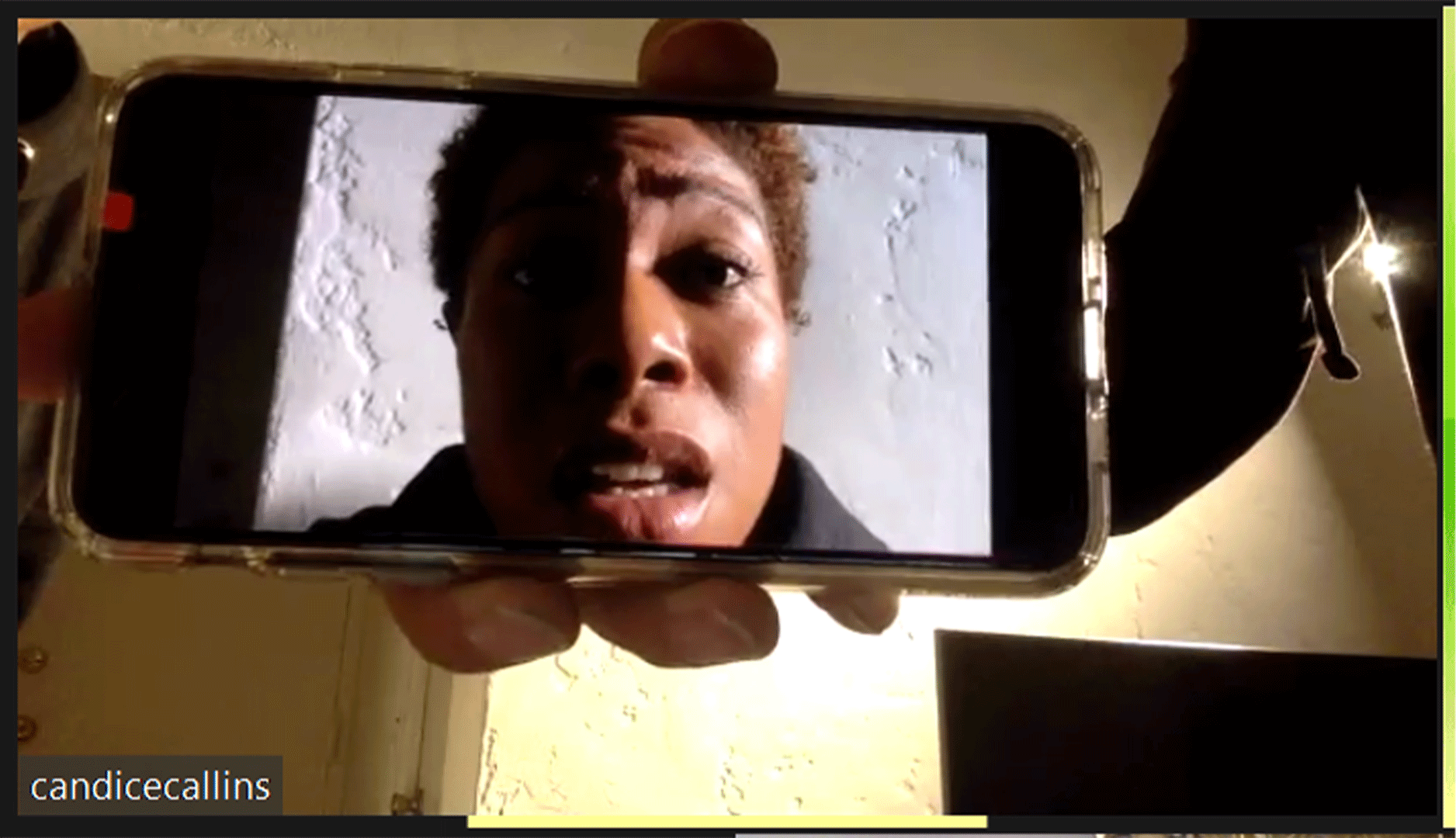
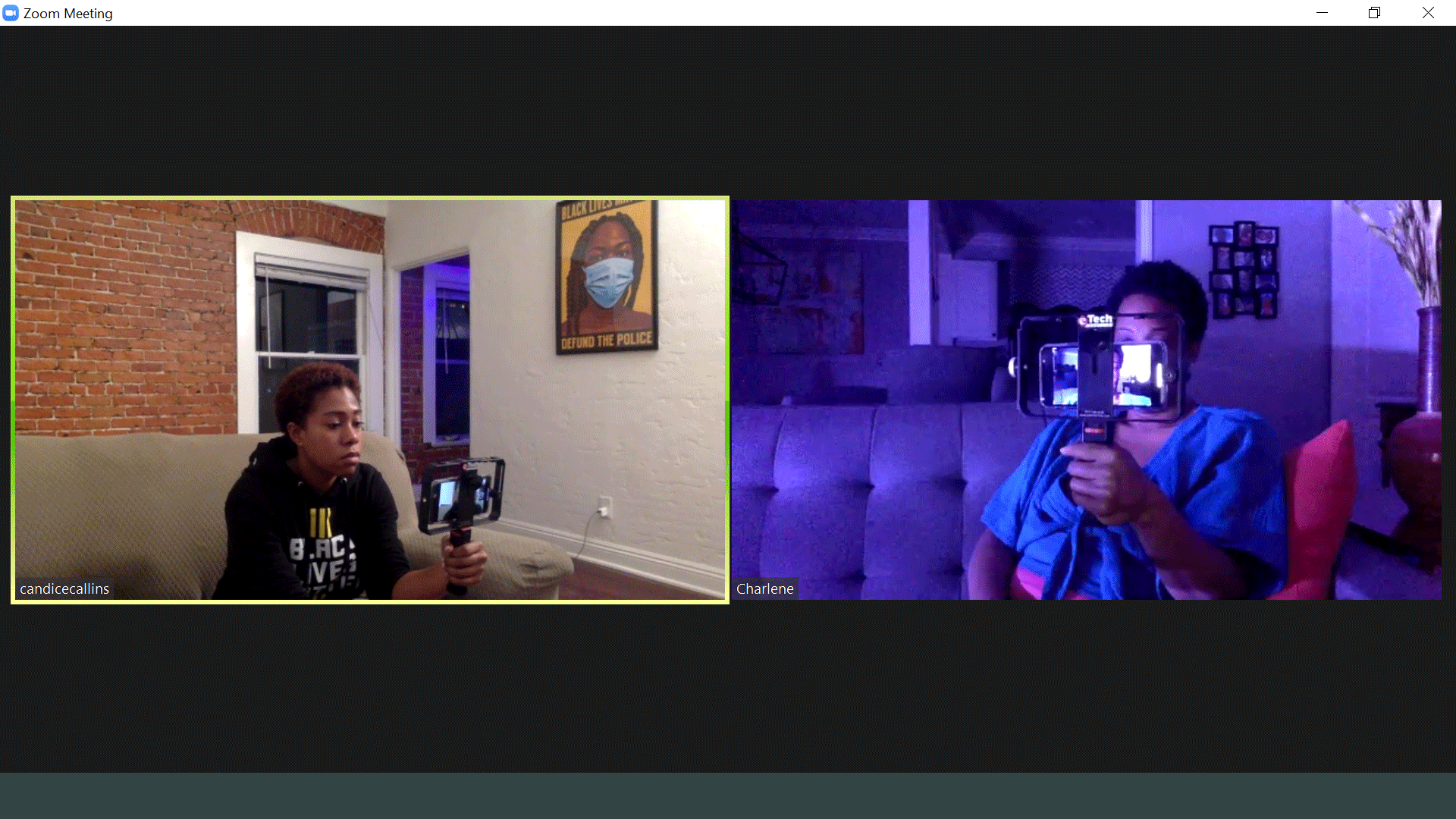
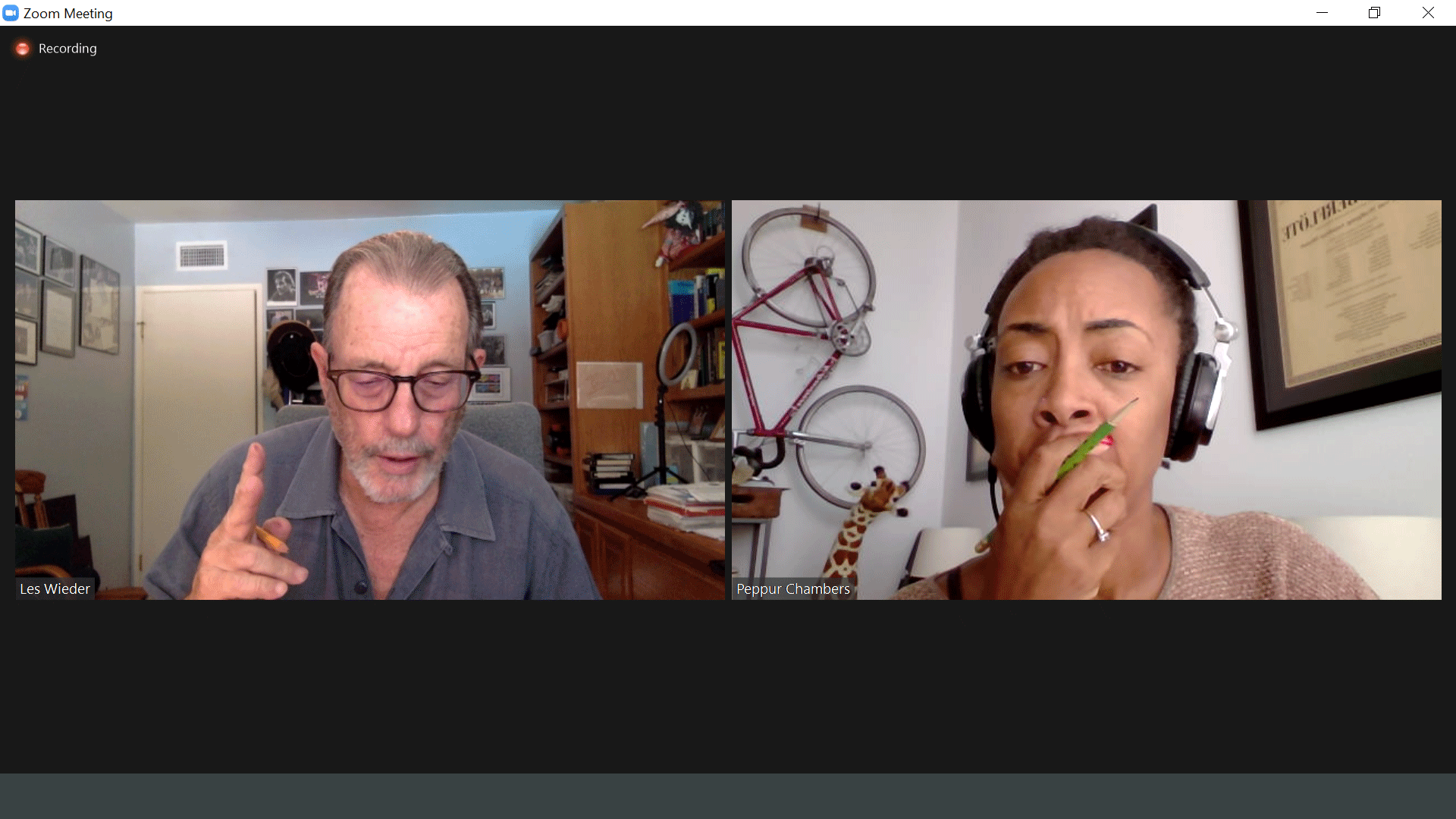
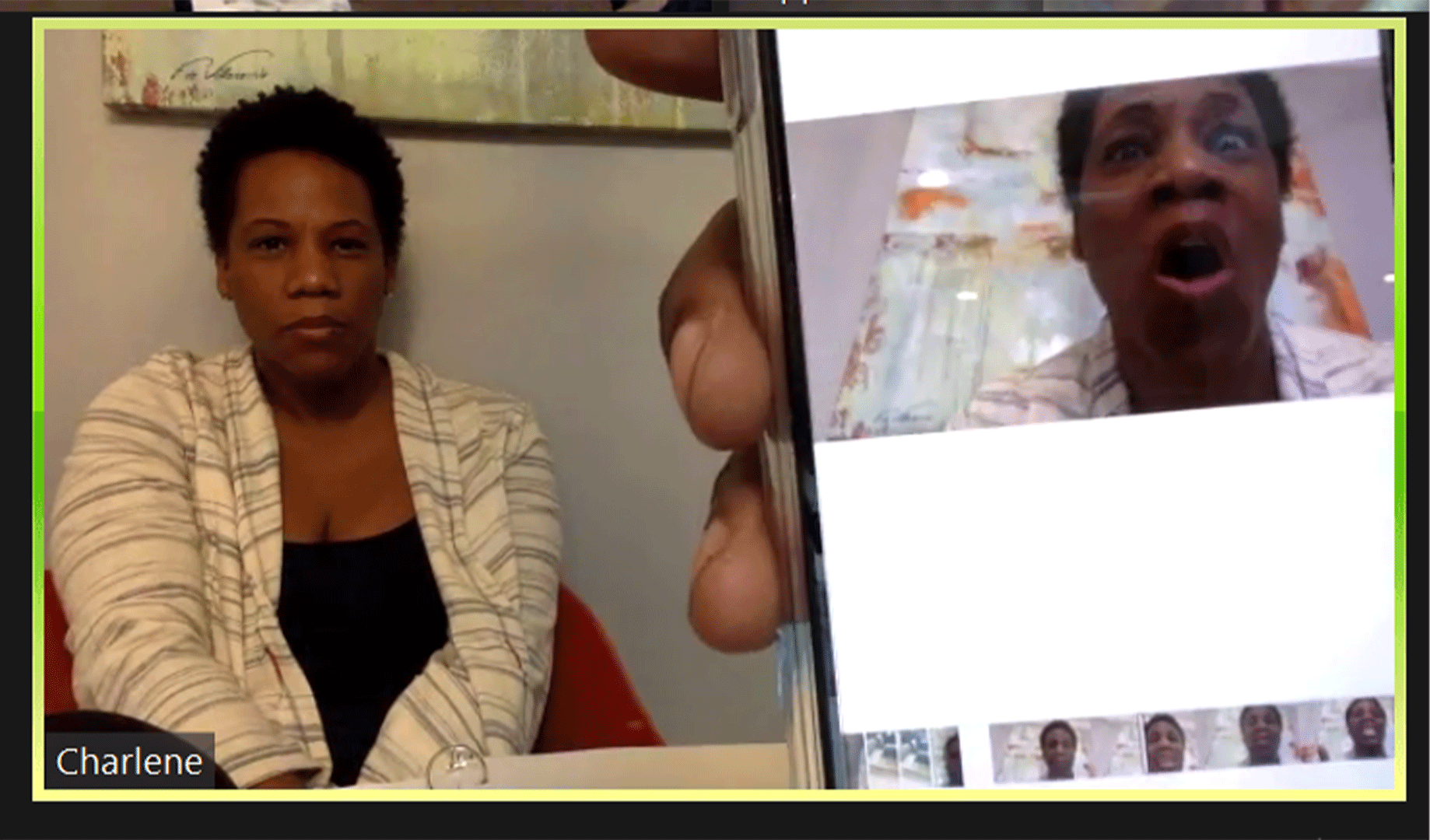
DO SOMETHING is a call to action, a call to bare arms — whatever that may look like for you. By telling the story generationally with our main character SEQUENA being the descendant of a protesting grandma from the late 60s, we wanted to show that while nothing changes, we must do something to make change. We all know how volatile 2020 was and we knew that if we didn’t speak up, we were complicit and complacent.
In creating our world of a film that takes place entirely within cell phones, DO SOMETHING had its fair share of mishaps. Footage was lost therefore requiring reshoots…we ran into technical issues with graphics … and we had some sound issues that were caused by our technology, but overall, we did a damn good job.
Except for one scene, no actors were in the same room together and I directed my team entirely from the confines and accessibility of Zoom.
Our cast and crew is incredibly diverse from age, to ethnicity, to gender, to orientation, to international representation. As a black woman, I am happy to represent this film both as its director and its co-writer (and co-producer with Les). Our story is led gallantly by black women; our sound, music, editorial and graphics are all helmed by women — mothers, daughters, independent professionals. Our cast is made of friends whom I love personally and have worked with multiple times over the years in LA; some are in commercials that are currently running much to my personal joy. All are delightful.
This project, like so many films, is a true labor of love, friendship and desire.
We’re proud of our work and our dedication to DO SOMETHING.
FROM THE DESK OF LES WIEDER
In the spring of 2020, my daughter started posting on Facebook her feelings about social justice and the unrest that was sweeping the country. Her postings were thought-provoking, insightful and filled with passion. As I read her writings I was taken by the depth of emotions of what she was saying. Her writings made me start thinking about what I could personally do besides marching and donating money with regards to the issues of race and social justice in the country. (A note of clarification … I am white male and have been married to an African American woman for over 40 years.)
As a playwright and director, I have used my skills to create productions with a social context for the audience I was serving. In the past I have written and produced plays in Los Angeles that had at their core questions that dealt with inter-racial relationships. With the pandemic roaring through the country, and the country in lockdown, I was thinking maybe I could write something and produce it via zoom that dealt with the issues of race and social justice. I’d already written about the virus in my short play, “The Virus and God”, that had been chosen by the Dramatist Guild for a zoom production in May of 2020. That experience made me think I could write something longer that illustrated what I was feeling about the turbulent time of 2020. That’s when I decided to write a story that I entitled, “Do Something”.
I worked on the story for a few weeks and when I finished I felt I had come up with something interesting and timely. It was then I called Peppur Chambers, an African American playwright and director who I had worked with for over a decade, and asked her to take a look at what I’d written and see if she would be interested in working with me turning the story into a script.
I felt that as a white male I could write the story but to write the script it was important to have a black woman work on it with me to bring the characters to life, and Peppur was my logical choice. She read my story and after we talked about it she agreed to write the script with me.
It took three months to get a script we both felt was ready for a reading. It was at that point I decided I would not direct the production. Why? Because of the nature of the script, I felt the production needed to be directed by a woman. I offered it to Peppur, whose past work I had greatly admired, and who I knew had similar sensibilities towards the project. I knew she could direct it with a sure hand. She agreed and we immediately began casting for the reading.
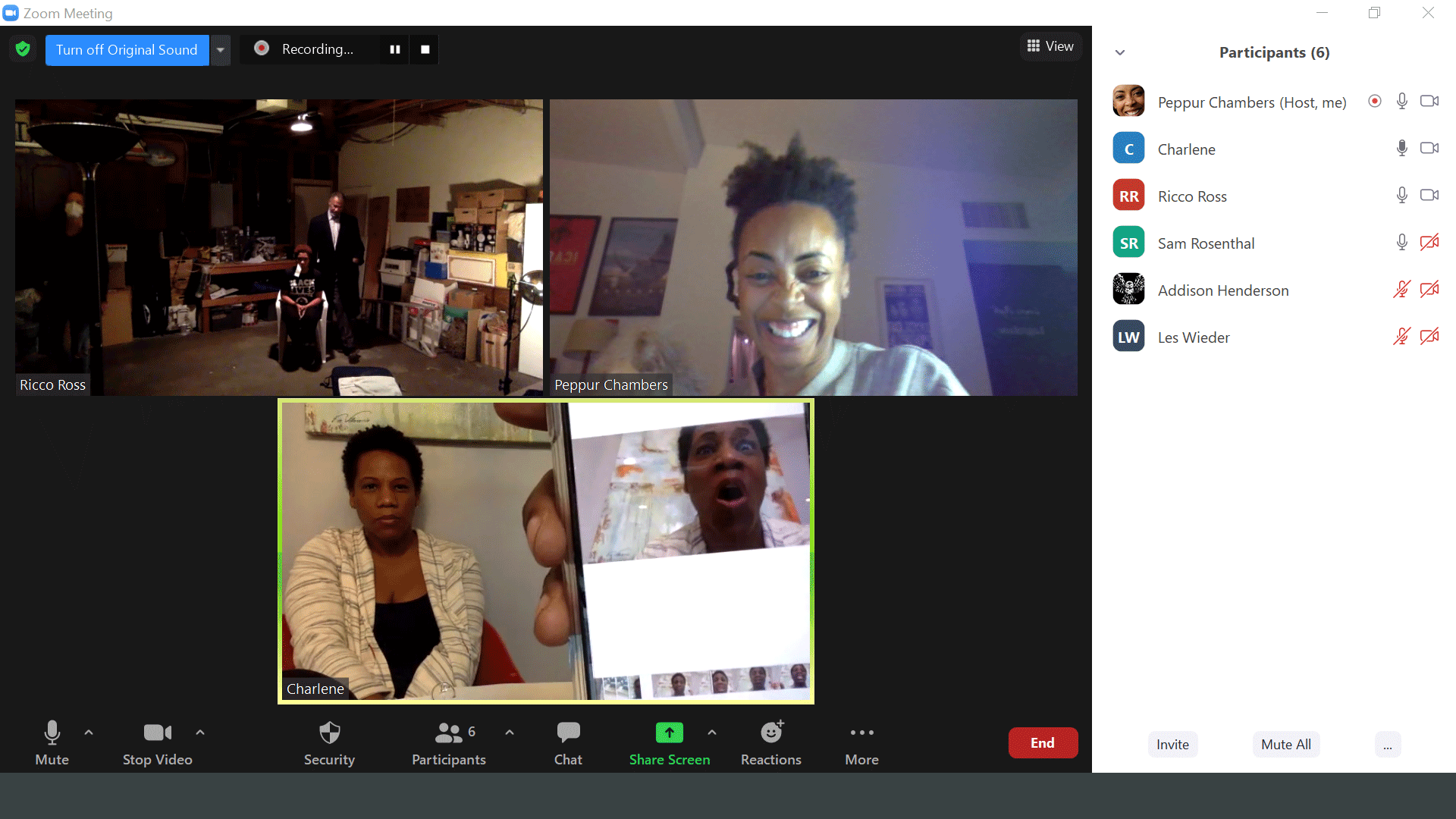
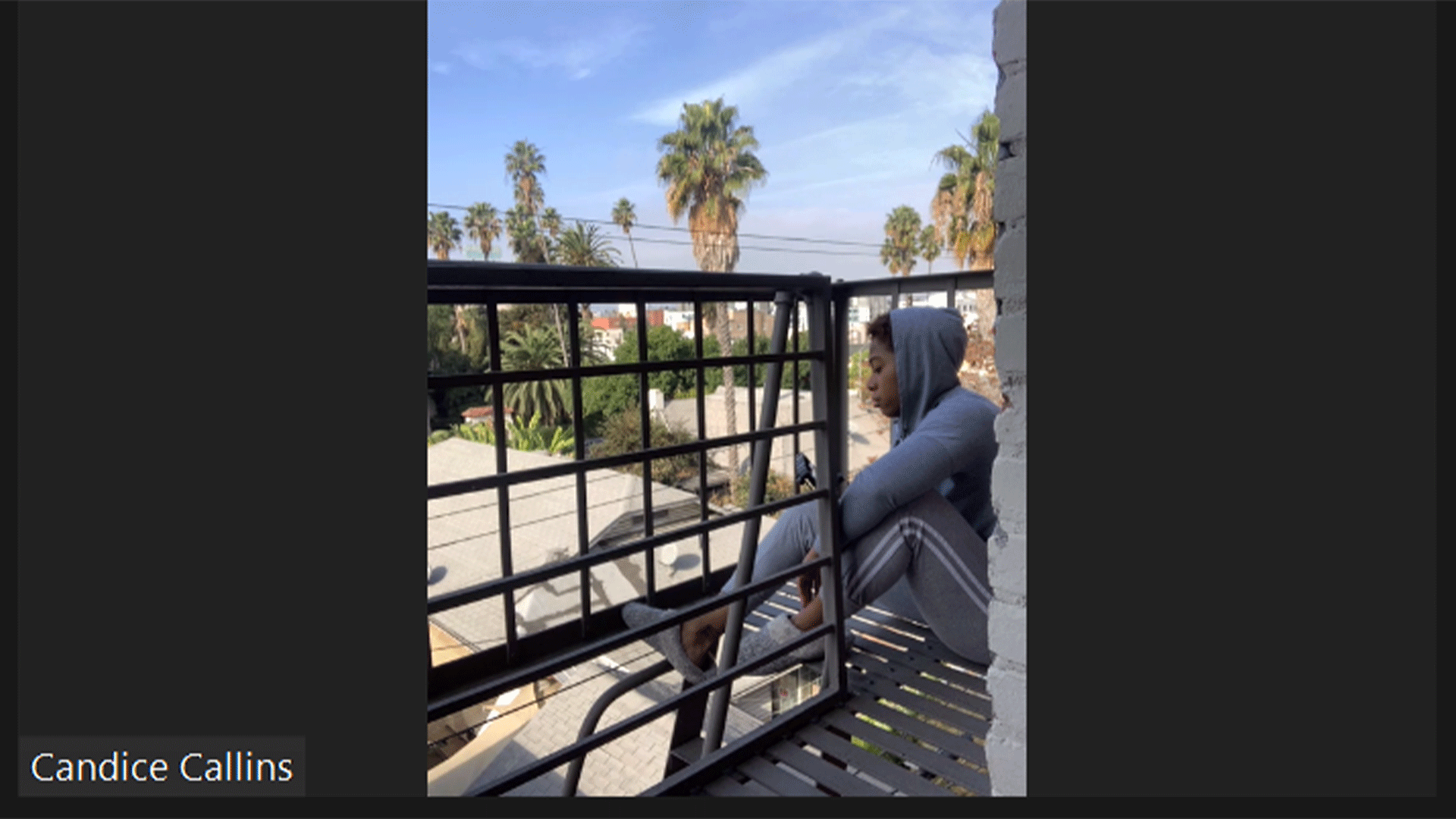
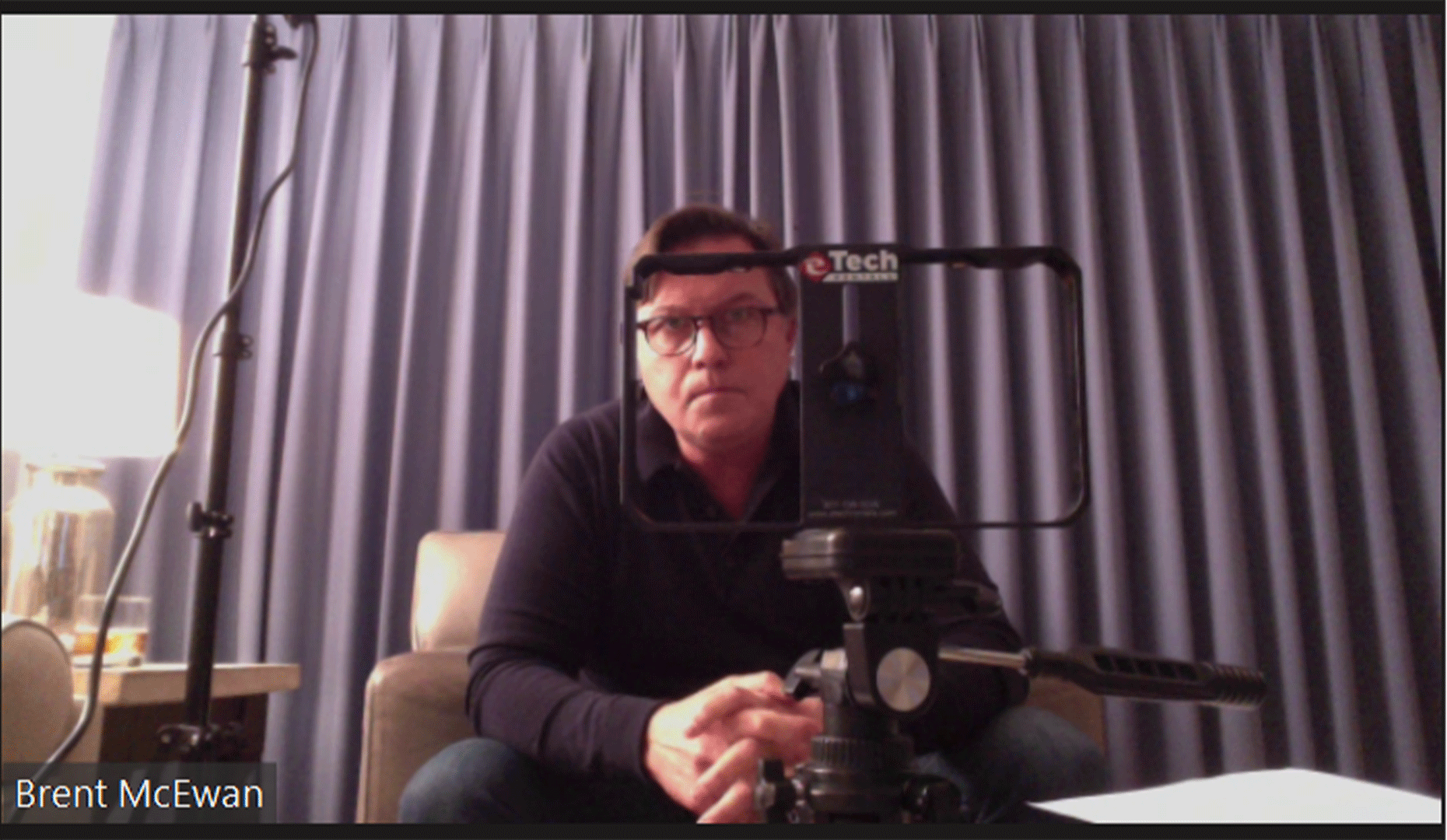
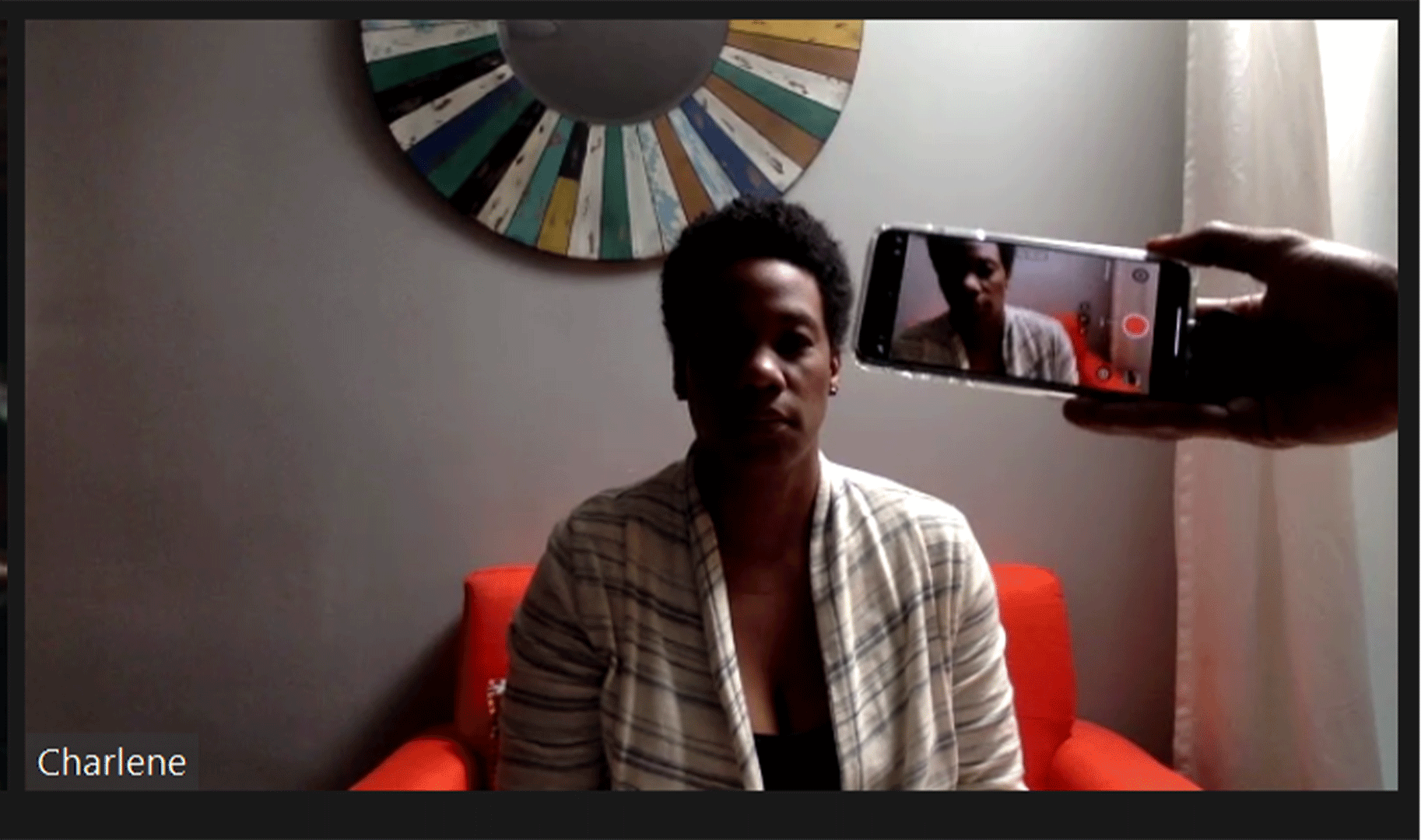
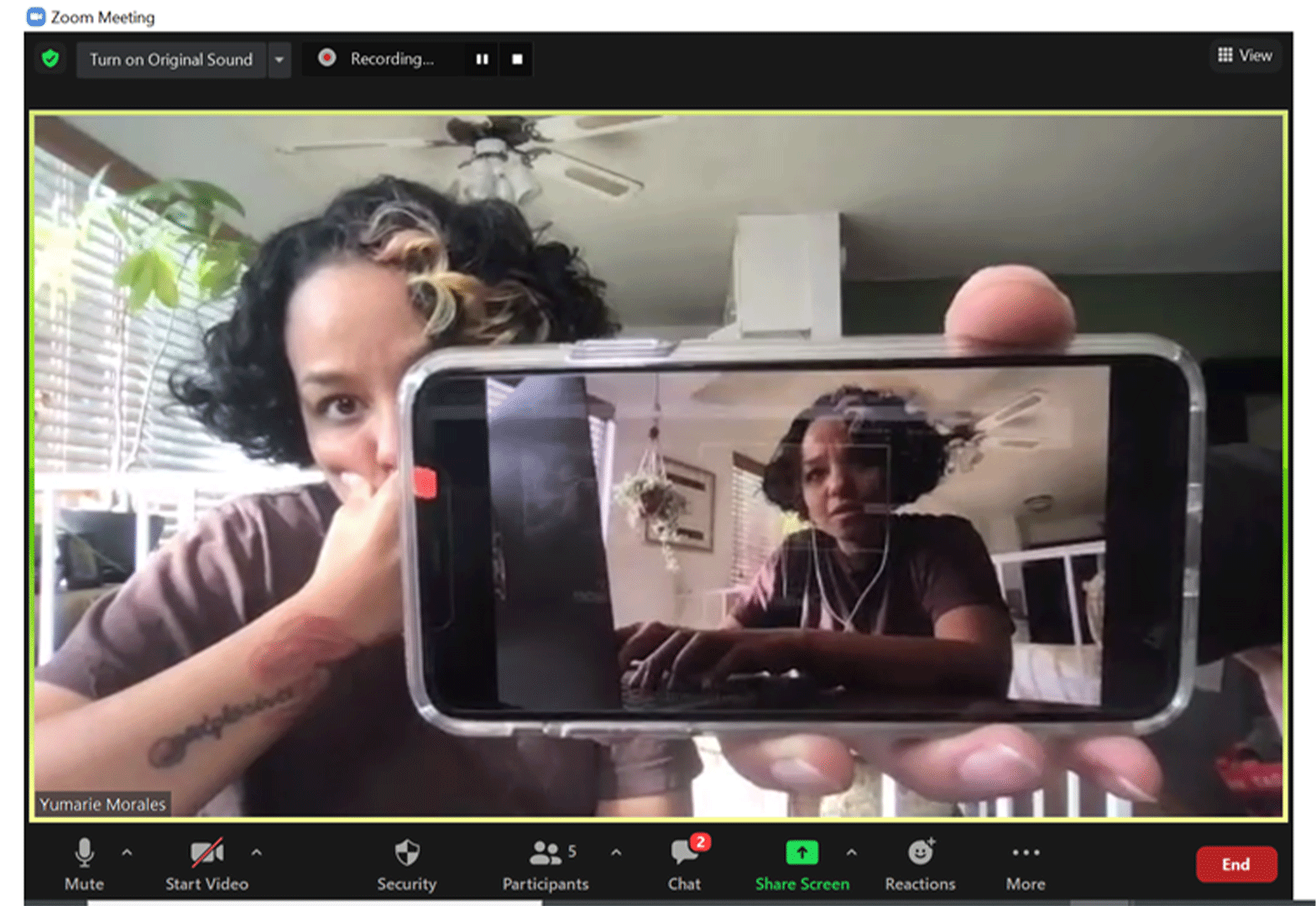
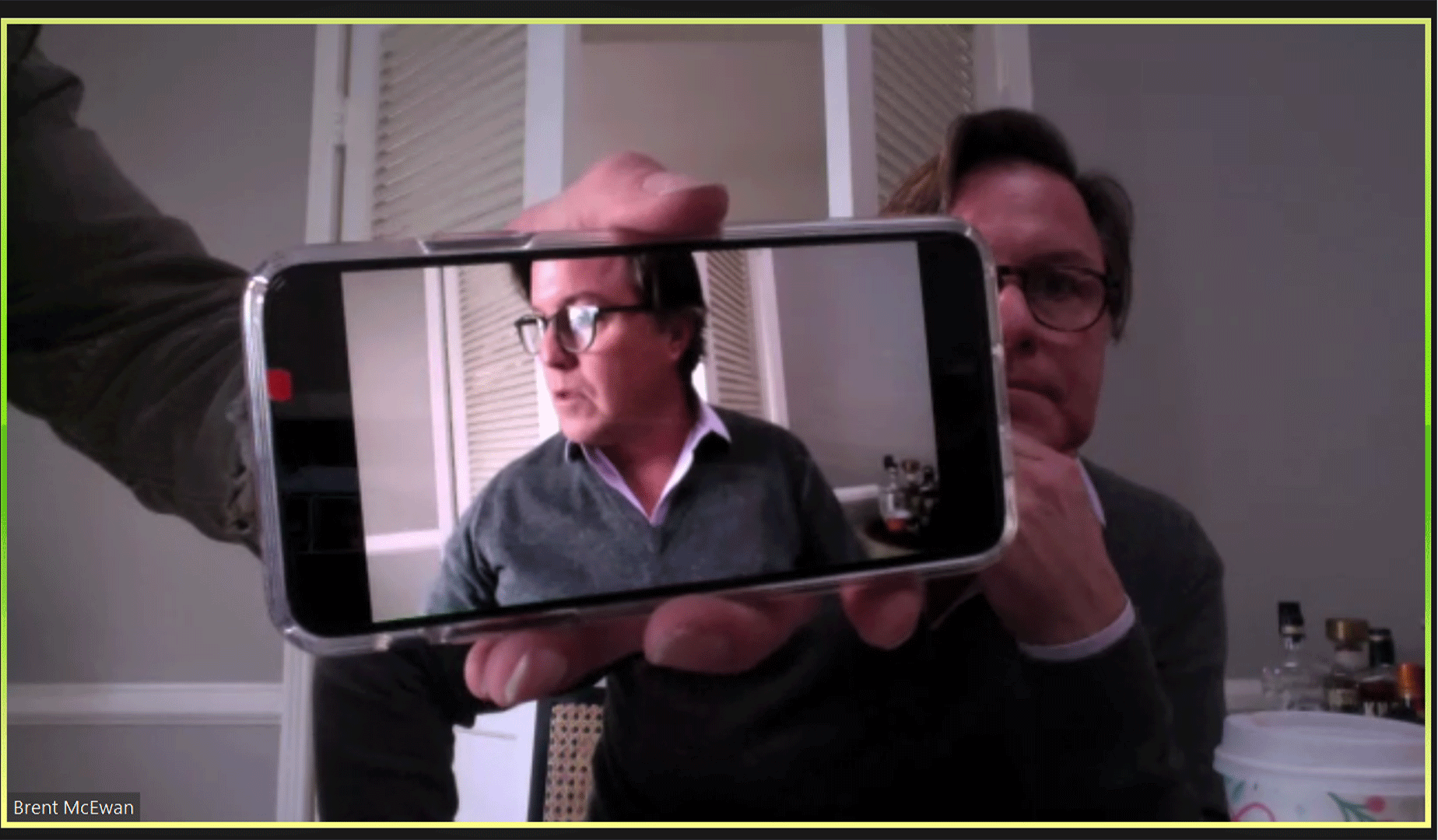
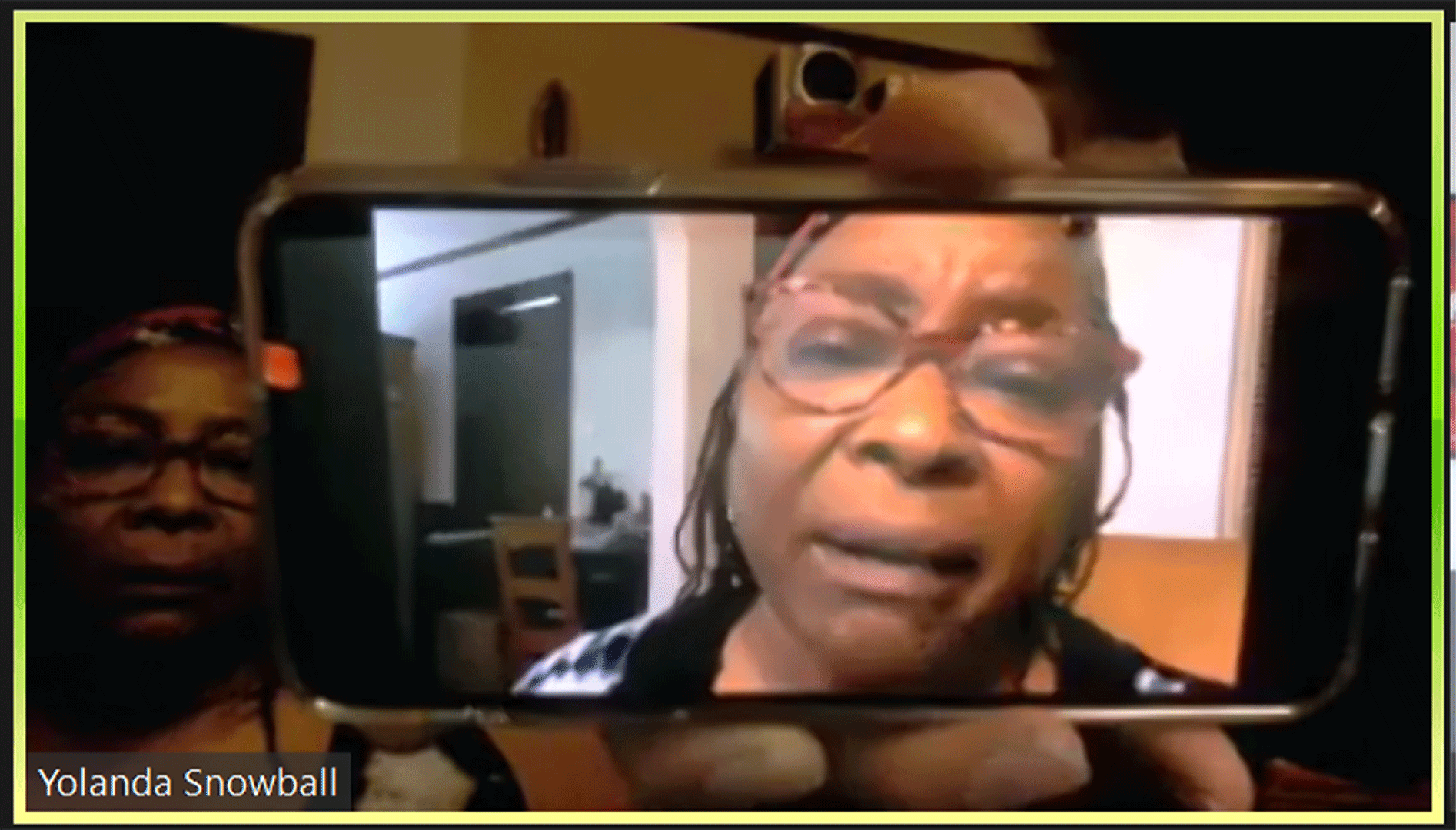
The zoom reading went very well. As a result, I decided to produce the production through my production company, Lazlo Vidor Productions. Once I made that commitment it was time to put the script into production. With Peppur directing, we assembled our cast of nine and a crew of six and started pre-production in October. Since all the action in the script takes place over cell phones we decided to shoot the script using only cell phones. Shooting took place the second week of December, 2020. Each day the company split into two locations. Both locations were hooked up via zoom to view the proceedings.
The director, director of photography, associate producer/editor, and me all watched the scenes being shot via zoom. After each take, each cell phone’s video was shown on the zoom screen for the director to make comments and changes. Then, if necessary another take was recorded and if that take worked we’d move on to the next scene. Scenes that required multiple actors to be in one location had a Covid-19 technician there to make sure everything was done to protocol requirements. Everyone was tested prior to the shoot and all safety standards were observed. Masks were worn by everyone and the actors only took them off when actually shooting a scene. It was exciting and a new experience for everyone involved.
After completing our initial shooting schedule, we took a two week break for the holidays and returned in early January to re-shot a couple of scenes after which we immediately went into post production. Over the course of the next several months the film was edited both in California and in the eastern European country of Georgia. (That’s another story for a later time.) By September of 2021 the film was completed and ready to be submitted to film festivals. Currently we have been officially selected into four festivals and have won 2 awards.